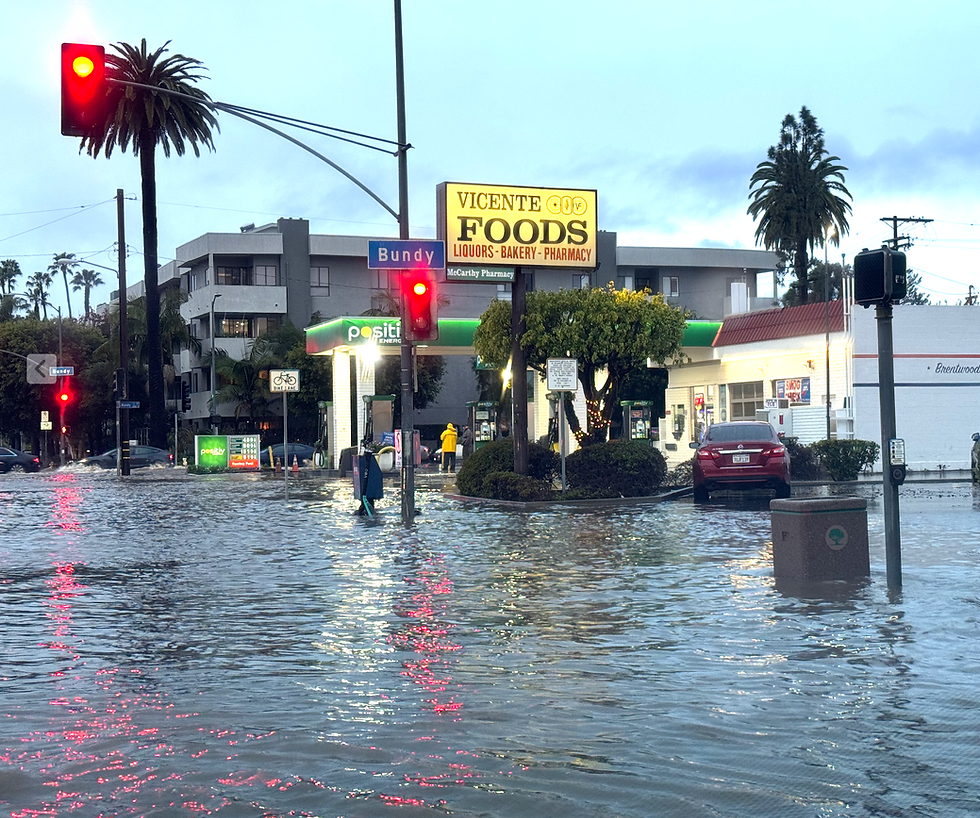Traci Park Shines While Bass Flounders
- Andrew Reed

- Mar 11, 2025
- 3 min read

If you like those traffic control officers on Sunset, thank Traci Park. If you like those illegal advertising signs along Sunset being removed, thank her area liaison Michael Amster, who is responsive and addresses community concerns expeditiously.
In the aftermath of the devastating wildfires that swept through Los Angeles in January 2025, the city's leadership has been put to the test. Among the officials navigating this crisis,
Traci Park, representing the Pacific Palisades, one of the areas hardest hit by the Palisades Fire, has been a visible force in the recovery process. The fire, which razed thousands of homes and claimed lives, left her district reeling, but Park has responded with action. She has spent considerable time in the burn zones, engaging directly with residents and recovery teams to address the immediate fallout.
One notable example of Park’s involvement was her collaboration with former Los Angeles Fire Department (LAFD) Chief Kristin Crowley. In the days following the fires, Park joined Crowley in the scarred landscapes of the Palisades, a move that underscored her commitment to understanding the ground-level challenges.
Park’s push for transparency has also earned her praise. During a City Council meeting, she pointedly remarked, “Neither I nor my colleagues have received the after-action reports we need to understand what went wrong with our firefighting resources and evacuations.” This call for accountability reflects her determination to not only aid recovery but also prevent future failures, resonating with constituents who feel let down by the city’s broader response.

While Park has been lauded for her engagement, Mayor Karen Bass has faced a barrage of criticism for her handling of the crisis. A key point of contention was her decision to travel to Ghana on a diplomatic trip just days before the fires erupted. Despite warnings of high winds and fire danger, Bass left the city, returning only after the damage was done. Critics have seized on this absence, with one resident quoted in local media saying, “We needed our mayor here, not halfway across the world.”
Compounding the issue, Bass’s office has been embroiled in a scandal over deleted text messages related to the Palisades Fire. Reports revealed that her phone was set to auto-delete messages after 30 days, and her administration argued that such communications aren’t subject to public record laws. This claim has sparked outrage, with transparency advocates arguing it obscures what Bass knew and when. “If you’re leading a city through a disaster, every message matters,” one watchdog group representative stated, capturing the public’s frustration.
Public opinion polls reflect this discontent. A survey conducted shortly after the fires found that only 19% of Angelenos rated Bass’s response as “excellent” or “good,” while over 40% called it “poor” or “very poor.” The dissatisfaction has even spurred a recall effort, with a committee now raising funds to gather the roughly 330,000 signatures needed to force an election. Though the recall’s success remains uncertain, its existence speaks volumes about Bass’s floundering leadership.
The differences between Park and Bass during this crisis are striking. While Park was in the burn zones, working alongside Crowley and advocating for her community, Bass was abroad, leaving Los Angeles to fend for itself in the fire’s early hours. Park’s demand for after-action reports contrasts sharply with Bass’s opaque handling of her communications, highlighting a divide between proactive engagement and perceived detachment.
This juxtaposition is not lost on observers. Park’s hands-on approach has positioned her as a leader attuned to her district’s needs, while Bass’s missteps have painted her as out of touch. The deleted texts, in particular, stand as a symbol of accountability dodged, while Park’s insistence on answers signals a commitment to learning from the disaster.
As the city rebuilds, the contrast between these two figures offers a compelling lesson: in times of crisis, presence and accountability matter. Park’s work suggests a path forward, while Bass’s challenges serve as a cautionary tale for a city no stranger to disaster.




Comments